
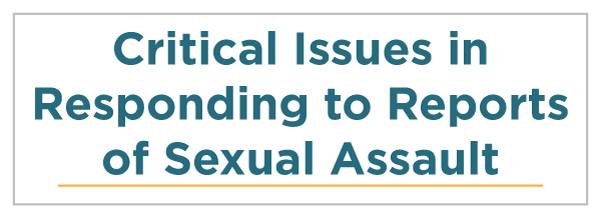 |
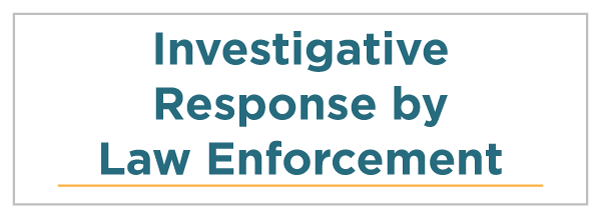 |
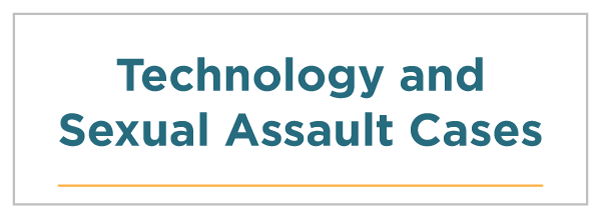 |
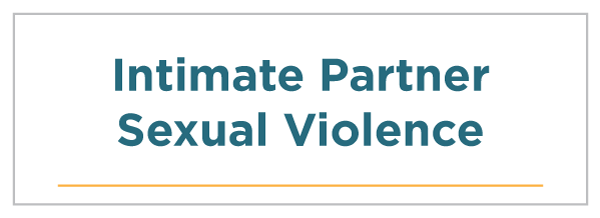 |
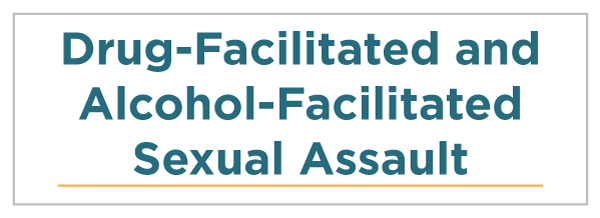 |
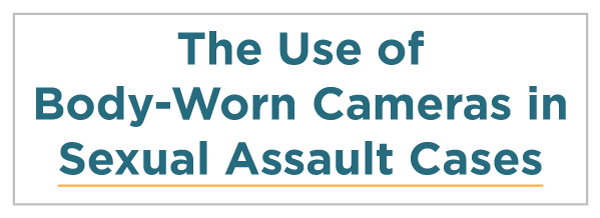 |
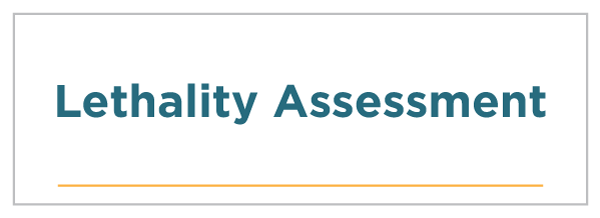 |
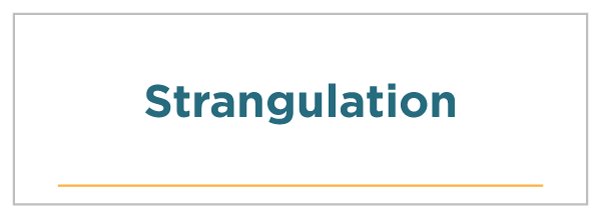 |
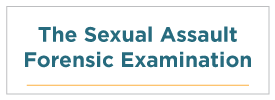 |
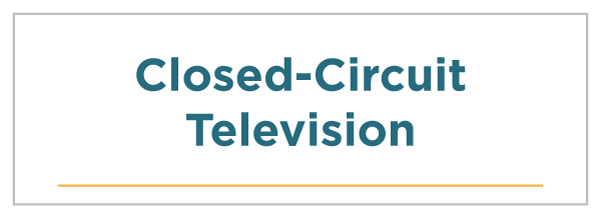 |
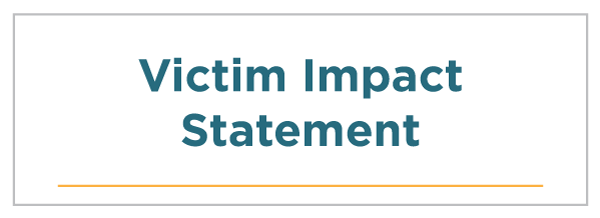 |
 |
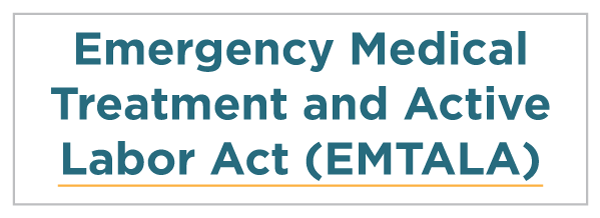 |
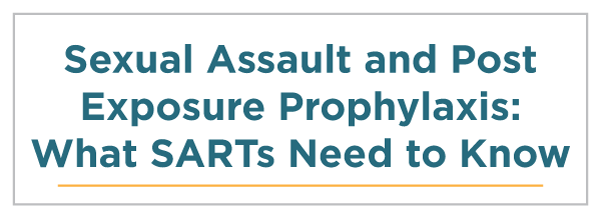 |
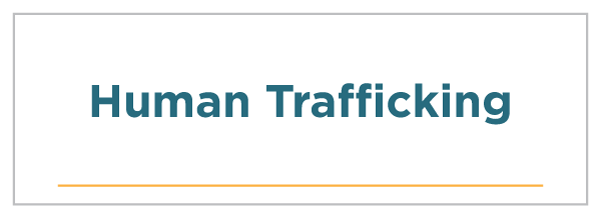 |
Expert testimony can positively impact a sexual assault case by providing the jury with a better understanding of the relevant evidence and related scientific, forensic, and medical issues. By providing insight into how trauma may affect the behavior of victims, an expert witness can provide critical information to a jury determining the outcome of a case.
To be admissible under Federal Rule of Evidence 702, the judge must make the following findings:
The following details about the aforementioned list are general, but your SART should examine state rules of evidence, which are often the same or similar to the federal rules, for specifics to your jurisdiction. SARTs should understand how your state or individual judge qualifies an expert, as the criteria for qualification may vary.
All evidence offered in a trial must pass through the relevance test. Evidence is relevant if it has the tendency to make a fact more or less probable than it would be without the evidence, and the fact is of consequence in determining the action (Fed. R. Evid. 401 (2011)). Relevance can be demonstrated by the connection of the expert’s theory to the underlying facts and data in the case.
A witness may be qualified as an expert in a number of different ways, and the legal requirements for being an expert are fairly minimal. The judge determines whether a witness is qualified to testify as an expert. The federal rule includes a non-exclusive list of factors the court may consider.
An expert may be qualified on the basis of knowledge, skill, experience, training, or education. No one factor controls the decision regarding qualification. A witness can be qualified as an expert based upon formal education, but no formal education is required if the witness has developed sufficient expertise through experience, training, or knowledge of the subject.
The expert’s testimony must rest on a reliable foundation. If the expert’s testimony is based on scientific principles, the expert’s testimony requires a foundation of scientific reliability. Reliability in the case of scientific testimony in federal courts, or states that follow current federal law, requires that the testimony be the product of reliable principles and methods and that the expert reliably applied those principles and methods to the facts in the case. [179]
Other states will determine reliability by looking at whether the theories or techniques being testified to are generally accepted as reliable within the scientific community. [180] Since most sexual assault expert testimony is specialized knowledge primarily based on experience, an expert is not likely to have a methodology for the court to test its reliability.
If the expert’s field is social science, the courts are divided on whether some alternative form of reliability is required. Most hold that some minimal foundation should be required that the expert is testifying to reliable and commonly used principles in the field. Generally, it is the expert’s experience itself that qualifies as the basis for the expert’s opinion. Therefore, the expert’s experience plays a significant role in the court’s determination of not only qualifications but also reliability.
The basic requirement of Rule 702 is that, to be admissible, expert testimony must be helpful to the jury in reaching its decision. The subject matter of the proposed expert testimony must be outside the jury’s common knowledge. In the case of sexual assault, the use of an expert witness who can dispel rape myths can be very useful.
One of the factors that courts have considered to evaluate the necessity of expert testimony is that jurors are at a disadvantage to judge the actions and behaviors of a person who has been sexually assaulted because that experience is foreign to the experience of the typical juror. The Colorado Supreme Court explained it this way:
“The lay notion of what behavior logically follows the experience of being raped may not be consistent with the actual behavior which social scientists have observed from studying rape victims … Expert testimony that challenges or explains these assumptions is valuable information which the jury should hear and consider in its search for the truth.” [181]
Numerous studies have examined rape myths and their effect on jurors’ decision-making. Rape myths have been used to shift blame away from the perpetrator and onto the victim. [182] An analysis of nine studies of rape myths and their impact on juries found that eight of the nine studies supported the idea that jurors’ judgements are influenced by rape myths and that rape myth acceptance is associated with not-guilty verdicts. [183]
Common brain-based victim behaviors that are often misinterpreted by jurors include delay in reporting the assault, not physically resisting the attack, lack of physical injuries, and fragmented memory of the event. These studies have shown that jurors apply these misconceptions to victim behavior before, during, and after a sexual assault. Expert testimony that can explain this behavior has been shown to be effective in obtaining higher conviction rates. [184]
Determining whether to call an expert witness and what type of expert is needed depends upon the unique facts of each case. Some cases will have physical evidence that requires the testimony of medical professionals and DNA experts from the crime lab. Other cases may lack physical evidence but still require an expert witness to explain to the jury that physical evidence is not present in all or even most cases of sexual assault.
Some cases require experts unique to the victim’s situation. For example, disability experts may be called to describe the behavior of a victim with a particular disability that may be misunderstood by a juror without sufficient knowledge.
Expert testimony by medical professionals is based on observable physical findings. Medical professionals, such as emergency room doctors or sexual assault forensic examiners (SAFEs), can describe the examination of the victim, any findings or observations, and their interpretations of those findings.
Medical professionals cannot give an opinion on whether or not the victim was assaulted; they can only testify to the observations of their examination. If DNA evidence was collected, a DNA expert from the crime lab will be needed to educate the jury on DNA and explain the significance of the laboratory findings. Medical professionals and crime lab scientists qualify as experts based on their formal education, licensure, continuing education necessary for maintaining licensure, and on-the-job training and experience.
In cases of sexual assault facilitated by drug and alcohol , an expert witness can be called to educate the jury on toxicology and how drugs and alcohol affect the body. In some cases, a medical forensic examiner may be qualified as an expert in the interaction of alcohol and drugs, both licit and illicit. For example, a medical forensic examiner can testify to the potential effect of mixing alcohol and common cold or allergy medications like Benadryl. The medical forensic examiner’s expertise comes from formal education, continuing education necessary for maintaining licensure, and experience as a medical care provider.
A specialized-knowledge expert may give background information that assists the jury in understanding the facts of the case, or may actually compare the facts to his or her experience. In a jury trial, the jury is the sole judge of the facts and credibility of witnesses. In sexual assault cases, expert witnesses are often called to explain things the victim did or did not do that are often viewed by the jury as counterintuitive.
Often the way a sexual assault victim behaves conflicts with the public’s expectations of how a victim should behave. If not adequately explained, jurors rely on pervasive societal misperceptions of sexual assault victims to conclude that the victim is lying. In these cases, the expert witness is not called to testify about an opinion, but rather to educate jurors about the possible reactions one might see as a result of trauma from a sexual assault. An expert witness may also be permitted to testify at trial without any knowledge of the facts of the case. The witness is merely offering background information to educate the jurors and help them understand the evidence.
Community-based advocates, law enforcement, and medical forensic examiners have been qualified to offer specialized-knowledge testimony. The witness’s expertise is likely not from formal education as much as from the specialized knowledge, training and experience the witness has gathered over years of working with victims or investigating cases. (As an example, see, People v. Dobek, 274 Mich. App. 58; 732 N.W.2d 546 (2007).)
The prosecutor can set up the need for a specialized-knowledge expert on victim behavior by asking questions during jury selection that demonstrate the jury’s lack of knowledge of or belief in sexual assault stereotypes.
Members of a SART should discuss and decide what, if any, role the members may have in developing and providing expert testimony. It is not advisable for community-based advocate team members working directly with victims to offer expert testimony in cases where the victim is a client. Potential for real or perceived conflicts of interest, inadvertent and unintentional waivers of privilege, and causing the victim to feel betrayed or confused about the advocate’s role are significant consequences that must be considered.
Conflict issues do not generally arise when medical forensic examiners or investigating officers serve as both fact and expert witnesses in the case. Even so, members should discuss when it is appropriate to provide testimony as an expert. Any issues of conflict of interest or appearance of collusion can be avoided if specialized-knowledge experts have a policy of testifying outside the jurisdiction where they typically practice.
It is also worth discussing how team members will build capacity or maintain their expertise through continual training, attending conferences, and even offering training to the other team members and to other professionals who respond to sexual assault.
Expert Testimony Workbook for Sexual Assault Advocates (PDF, 27 pages)
This workbook by the Sexual Violence Justice Institute at Minnesota Coalition Against Sexual Assault provides guidance for advocates working with prosecutors and defense attorneys, information on qualifying as an expert witness, and details on other aspects of a sexual assault trial.
Introducing Expert Testimony to Explain Victim Behavior in Sexual and Domestic Violence Prosecutions (PDF, 92 pages)
This guide by the National District Attorneys Association includes recommended practices for introducing expert testimony, as well as the impact of myths on the jury and the definitions of common terms used to explain victim behavior.
Introducing Expert Testimony in Sexual Violence Cases (Webinar)
This webinar recorded by AEquitas discusses how and when expert testimony may be admissible in cases of sexual violence to explain victim behavior. The webinar’s runtime is 60:25.
When and How: Admitting Expert Testimony on Victim Behavior in Sexual Assault Cases in Pennsylvania (PDF, 7 pages)
This brief by AEquitas discusses recommended practices for admitting expert testimony on victim behavior in Pennsylvania.
| Back | Index | Next |
